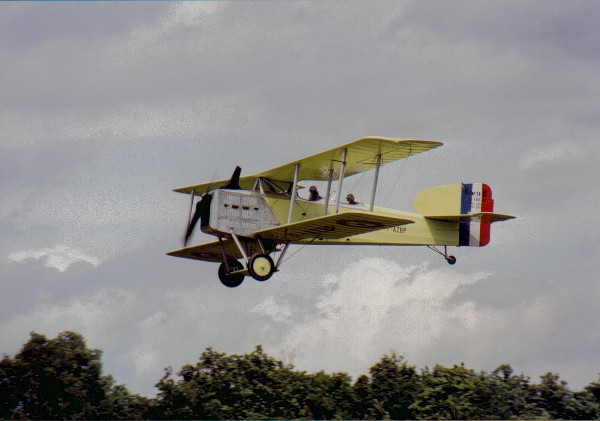It happened at an energy conference in 2007.
In a small conference room at a swanky hotel in Philadelphia, I told a room full of Energy and Capital readers that in less than 10 years, electric cars would represent the next evolution of auto design and manufacturing.
During that presentation, I spoke about a private company called Tesla that was producing a high-end electric car that would ultimately change the entire conversation about what an electric car could accomplish in terms of efficiency, performance, and desirability.
I enthusiastically stated that never again would electric cars be seen as little more than glorified golf carts. And I was right. About all of it.
Not only did Tesla become one of the most disruptive companies in the auto industry, and not only did it make early investors a boatload of cash, but the car it delivered to the world — the Model S — proved to be one of the most impressive cars to ever drive on our highways.
Now, had I told you in 2007 that in just 10 years, you’d be able to buy a $35,000 all-electric car that could deliver 200 miles on a single charge and look like this…

You probably would’ve laughed.
Most did back then, when I proudly declared that I was bullish on electric cars.
Of course, here we are 10 years later, and nearly every major automaker on the planet has an electric car either on the road or in production.
Now, I’m not here today to chest-pound. After all, electric cars are quite common these days. They’re no longer the “new thing.”
Instead, today I’d like to share with you the next “new thing” in transportation, and, more importantly, how you can play it the same way we played Tesla and the rise of the electric car.
A Monumental Accomplishment
Take a look at this…

This is the plane that went down in history as the “first flight.”
It flew 12 seconds and covered 120 feet. It was a monumental accomplishment.
This was in 1903.
Then, just 13 years later, the French were building a warplane called the Breguet Br. 14, which boasted an impressive 300hp and a 7.7 mm forward-fixed Lewis machine gun. Take a look…

Think about how fast that technology developed in less than 20 years.
It truly is remarkable. But it’s nowhere near as remarkable as what the aerospace industry is capable of accomplishing today.
Our analysts have traveled the world over, dedicated to finding the best and most profitable investments in the global energy markets. All you have to do to join our Energy and Capital investment community is sign up for the daily newsletter below.
The Latest Technological Breakthrough for the Aerospace Industry
Check this out…

This is the first-class cabin of an Emirates A380 flight from JFK to Dubai.
Imagine what the Wright Brothers would say if they could take a ride on this thing.
We’ve come a long way since that “first flight” in Kitty Hawk, NC.
But throughout the decades, despite multiple breakthroughs in aerospace technology and design, there’s still one thing that really hasn’t changed much: the fuel.
While today’s modern airplanes are incredibly efficient, convenient, and fast, they’re still relying on the same basic petroleum-based fuels that powered the earliest military planes and commercial jets.
But that’s about to change.
You see, some of the major players in the aerospace industry, such as Airbus (OTCBB: EADSY) and Siemens (OTCBB: SIEGY), are actively developing electric planes that will one day make jet fuel irrelevant.
I’m serious.
In fact, just last summer, an electric aircraft motor designed by Siemens was put to the test in this plane, the Extra 330LE.

Although the initial flight only lasted 10 minutes, it set the bar for the next big technological advancement in aerospace.
The next step will be regional flights. Siemens, along with a few other aircraft manufacturers, is looking to get electric airplanes to start covering regional flights in just three to four years.
That’s not too far off.
Now, there are a number of advantages for electric planes over conventional planes.
Certainly environmental and security are two that come to mind, but there are also some pretty major financial benefits, too.
As pointed out by the good folks at Siemens, electric aircraft are much quieter than conventional aircraft.
This will benefit not only those who live near airports but also flight operators, because quiet drive systems may make it possible to offer evening and night flights that are now banned for noise reasons. This could significantly increase aircraft capacity utilization and therefore the profitability of business models.
And of course, even with oil at record lows, jet fuel ain’t cheap.
The bottom line is that it’s time for the airline industry to get its next technological makeover. And this one will be based on replacing jet fuel with batteries, and piston engines and gas turbines with electric motors.
Make no mistake: this transformation that’s about to take place in the airline industry is going to be huge, and certainly we’ll be looking to capitalize on it.
To a new way of life and a new generation of wealth…

Jeff Siegel
Jeff is an editor of Energy and Capital as well as a contributing analyst for New World Assets.
Want to hear more from Jeff? Sign up to receive emails directly from him ranging from market commentaries to opportunities that he has his eye on.

 @JeffSiegel on Twitter
@JeffSiegel on Twitter